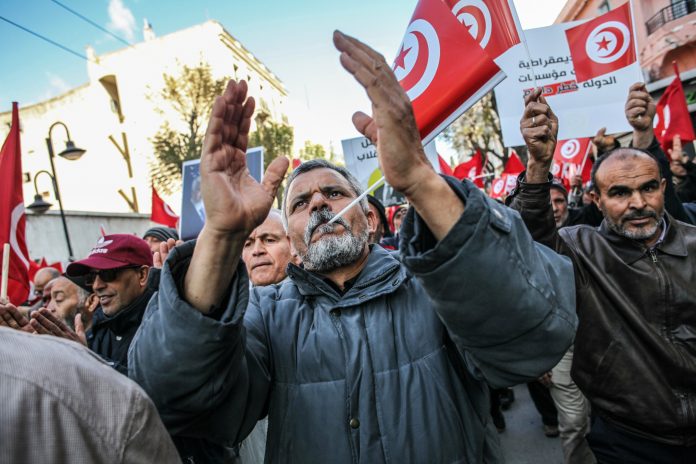Somali Magazine – In a recent development, Tunisia has been in the spotlight for its proposed laws aimed at stifling Non-Governmental Organizations (NGOs) by capitalizing on deep public anger against Israel and its Western backers. The draft forbids ‘recognition of the Zionist entity or the establishment of direct or indirect ties’ with it.
This move comes amidst a backdrop of increasing tensions in the region, with Tunisia mulling over these laws in response to the pro-Palestinian sentiments sweeping across the nation. The proposed legislation has sparked a heated debate within the country and beyond, raising questions about the future of civil society and the role of NGOs in Tunisia.
The draft law is seen as a reaction to the perceived influence of foreign NGOs in Tunisia’s domestic affairs. Critics argue that the law could be used to suppress dissent and curb the activities of organizations working on sensitive issues such as human rights, democracy, and social justice.
However, supporters of the law argue that it is necessary to protect Tunisia’s sovereignty and prevent foreign interference. They contend that NGOs, many of which receive funding from abroad, should be subject to stricter regulation to ensure they are acting in the best interests of Tunisia.
The proposed law has drawn criticism from international human rights organizations, who warn that it could be used to crack down on civil society and limit freedom of expression. They argue that the law could be used to silence critics of the government and stifle independent voices.
Despite the controversy, the draft law has gained traction among some sections of the Tunisian public, who view it as a necessary step to counter foreign influence and protect national interests.
The debate over the proposed law reflects the broader challenges facing Tunisia as it navigates its path witin democracy. The country has been hailed as a success story of the Arab Spring, but it continues to grapple with political instability, economic challenges, and social unrest.
As Tunisia debates this contentious law, the world watches closely. The outcome could have far-reaching implications for civil society in Tunisia and set a precedent for other countries in the region.

